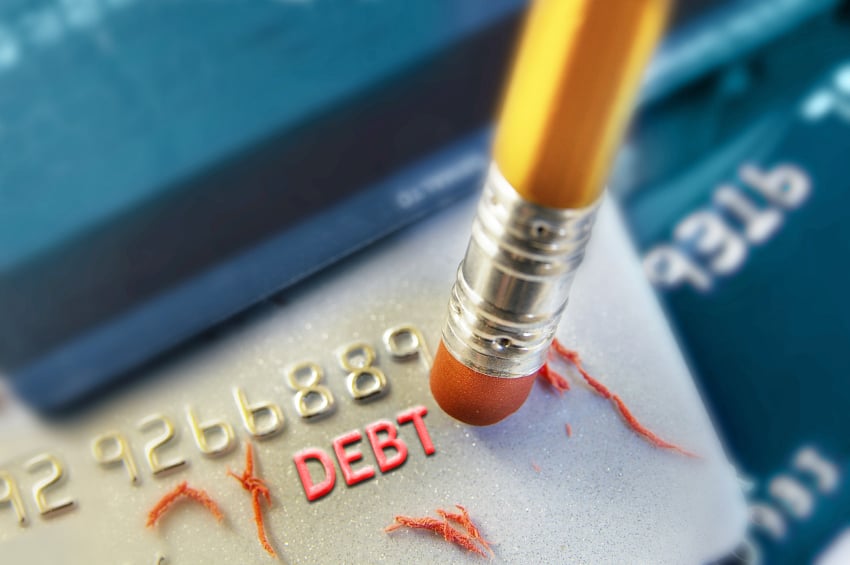
Debt can be crippling | iStock.com
1. You don’t keep a budget
Keeping a budget is essential in order to become financially stable, and to eventually get out of debt. Even if you regularly pay your loan payments, you won’t be able to pay much extra, or even pay every month, if you don’t keep track of your spending and stay in budget. Without regular budgeting updates, you won’t know how much you are spending, or how much extra you have. This will make it difficult to prioritize cutting down your debt, because if you are overspending each month, you will risk going even further into debt.A Gallup poll found that only one in three Americans keeps a detailed household budget each month. If you are part of this group, and you want to get out of debt, then maintaining your budget is a great place to start.
2. You don’t set financial goals
Setting financial goals specifically about your debt will help you have a date in mind to pay off your debt. If you owe a lot of money, it can feel like you will never pay it off. However, setting a specific goal will allow you to plan for how much you need to pay off each month in order to meet your goal. In addition, knowing a due date will help you visualize the debt disappearing, which can help motivate you to keep up with your payments.According to a poll by CreditCards.com, 18% of those polled who were already in debt expected to still have loans when they died. Thinking like this will certainly not help you pay off your debt, but setting financial goals can.
3. You rely too heavily on credit cards
Credit cards can be helpful and even necessary, but they can also be dangerous. Because of the high interest rates, using credit cards too much (especially if you can’t immediately pay the minimum balance) can truly destroy your budget, and leave you in a long-term debt cycle. The average credit card debt includes $1,128 per card that doesn’t carry a balance, $1,164 per account for U.S. adults with a credit report and a Social Security number, $3,766 per person for U.S. resident adults, and $5,540 per U.S. adult with a credit card.If the majority of your debt is from credit cards, or you rely too heavily on credit cards, you can reduce your debt by negotiating lower rates, tracking your progress, paying with cash, and implementing other ideas such as those mentioned in this article (like using a budget and making goals).



No comments:
Post a Comment